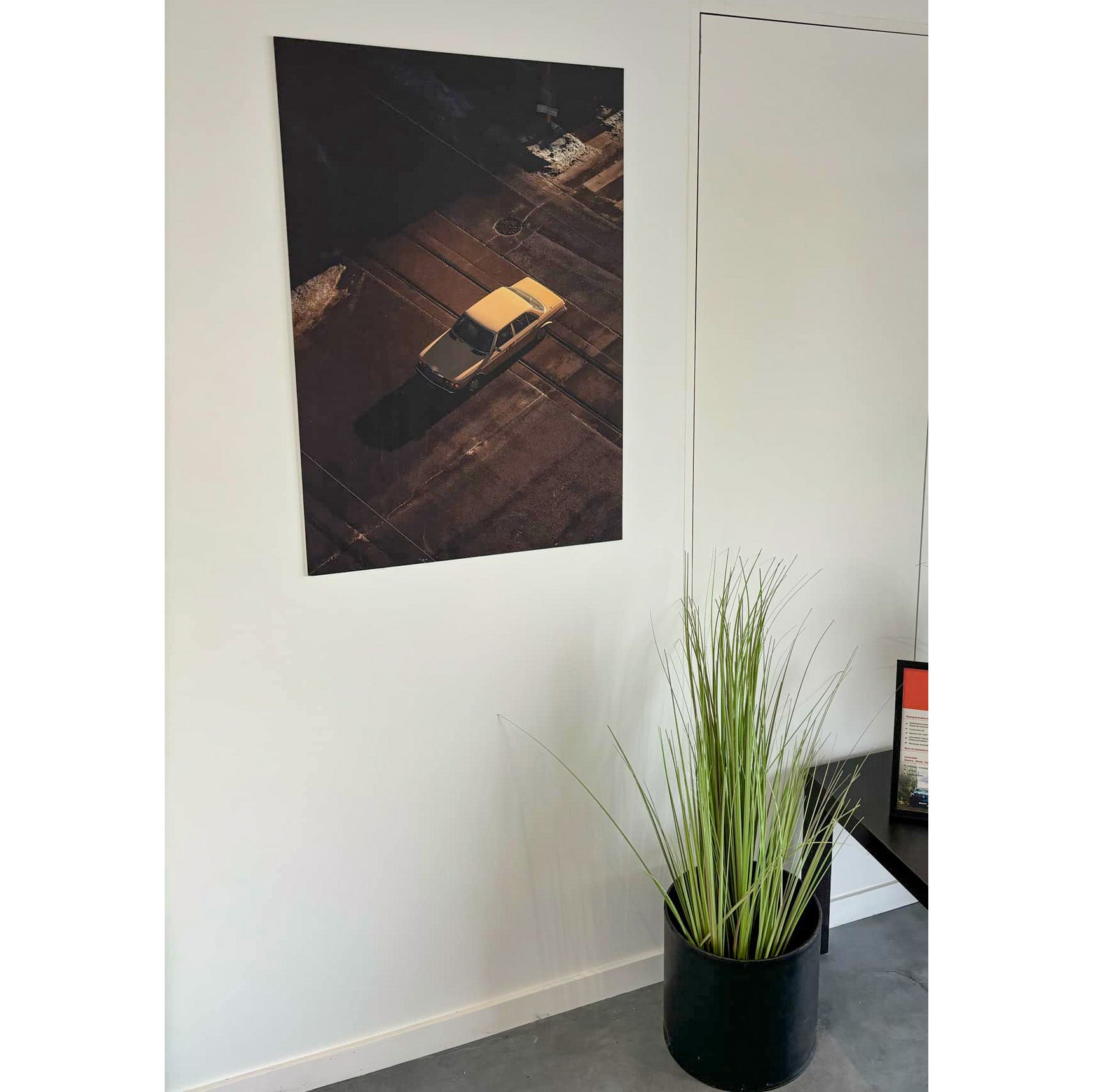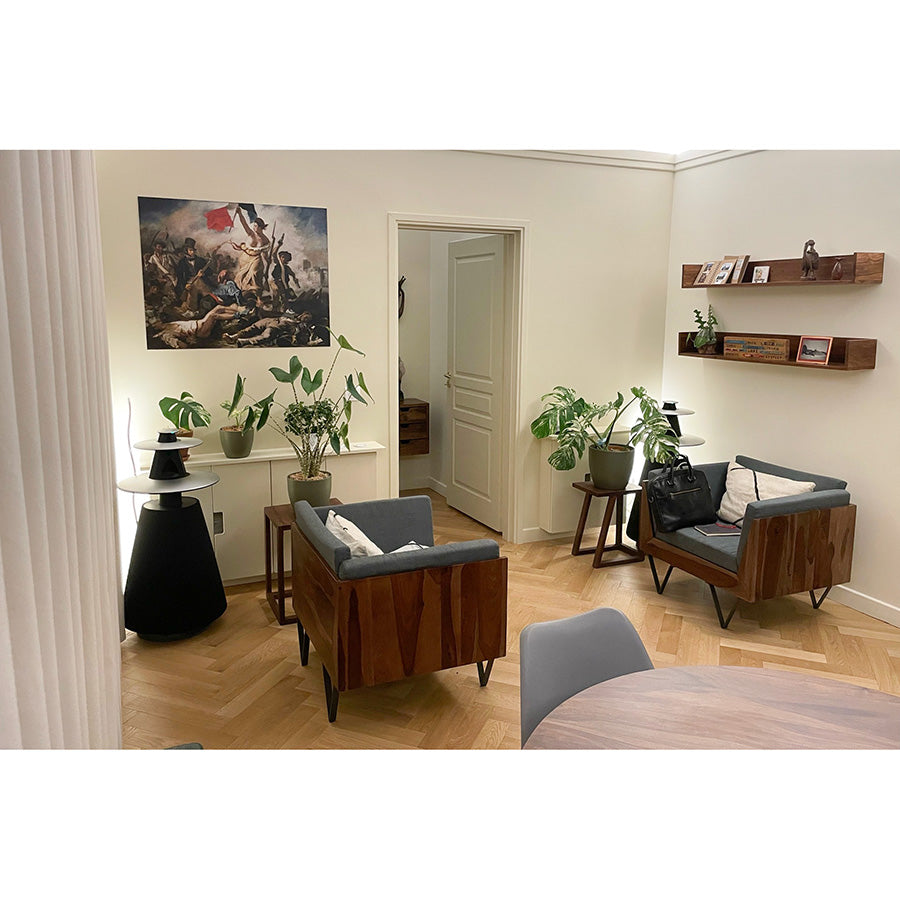Art print | Self-portrait (conflict of cases) - Georges Émile Lebacq


View from behind

Frame (optional)
Autoportrait (conflit de cas) - Georges Émile Lebacq – Engaging introduction
The art print "Autoportrait (conflit de cas) - Georges Émile Lebacq" presents itself as a poignant exploration of identity and human duality. In this artwork, the artist succeeds in capturing a profound introspection, inviting the viewer to delve into the depths of the soul. Through subtle nuances of color and play of light, Lebacq manages to evoke complex emotions, making this piece a true mirror of the human condition. By depicting himself, he does not merely deliver a simple image of his face but engages in a dialogue with the viewer, encouraging reflection on their own internal conflicts.
Style and uniqueness of the art print
The style of Georges Émile Lebacq is characterized by an approach that is both impressionist and symbolist. In "Autoportrait (conflit de cas)", the brushstrokes are both free and controlled, creating a vibrant atmosphere that transcends mere representation. The chosen hues oscillate between shadow and light, symbolizing the artist's internal struggles. The composition, although centered on the face, reveals psychological depth, as if each feature of his face tells a story. Lebacq also uses decorative elements that enrich the artwork, demonstrating his skill in integrating symbols and motifs that resonate with universal human experience. This art print stands out for its ability to capture not only physical appearance but also the very essence of the artist, making each gaze at the piece unique and personal.
The artist and his influence
Georges Émile Lebacq, a prominent figure of Belgian art in the 20th century, managed to leave his mark through his bold vision and artistic commitment. Influenced by the great masters of painting, he developed a style that is uniquely his own, blending tradition and modernity. His work is imbued with a constant search for authenticity and inner truth, which sets him apart in the artistic landscape. Through "Autoportrait (conflit de cas)", Lebacq perfectly illustrates this quest, addressing universal themes such as the

Matte finish

View from behind

Frame (optional)
Autoportrait (conflit de cas) - Georges Émile Lebacq – Engaging introduction
The art print "Autoportrait (conflit de cas) - Georges Émile Lebacq" presents itself as a poignant exploration of identity and human duality. In this artwork, the artist succeeds in capturing a profound introspection, inviting the viewer to delve into the depths of the soul. Through subtle nuances of color and play of light, Lebacq manages to evoke complex emotions, making this piece a true mirror of the human condition. By depicting himself, he does not merely deliver a simple image of his face but engages in a dialogue with the viewer, encouraging reflection on their own internal conflicts.
Style and uniqueness of the art print
The style of Georges Émile Lebacq is characterized by an approach that is both impressionist and symbolist. In "Autoportrait (conflit de cas)", the brushstrokes are both free and controlled, creating a vibrant atmosphere that transcends mere representation. The chosen hues oscillate between shadow and light, symbolizing the artist's internal struggles. The composition, although centered on the face, reveals psychological depth, as if each feature of his face tells a story. Lebacq also uses decorative elements that enrich the artwork, demonstrating his skill in integrating symbols and motifs that resonate with universal human experience. This art print stands out for its ability to capture not only physical appearance but also the very essence of the artist, making each gaze at the piece unique and personal.
The artist and his influence
Georges Émile Lebacq, a prominent figure of Belgian art in the 20th century, managed to leave his mark through his bold vision and artistic commitment. Influenced by the great masters of painting, he developed a style that is uniquely his own, blending tradition and modernity. His work is imbued with a constant search for authenticity and inner truth, which sets him apart in the artistic landscape. Through "Autoportrait (conflit de cas)", Lebacq perfectly illustrates this quest, addressing universal themes such as the









